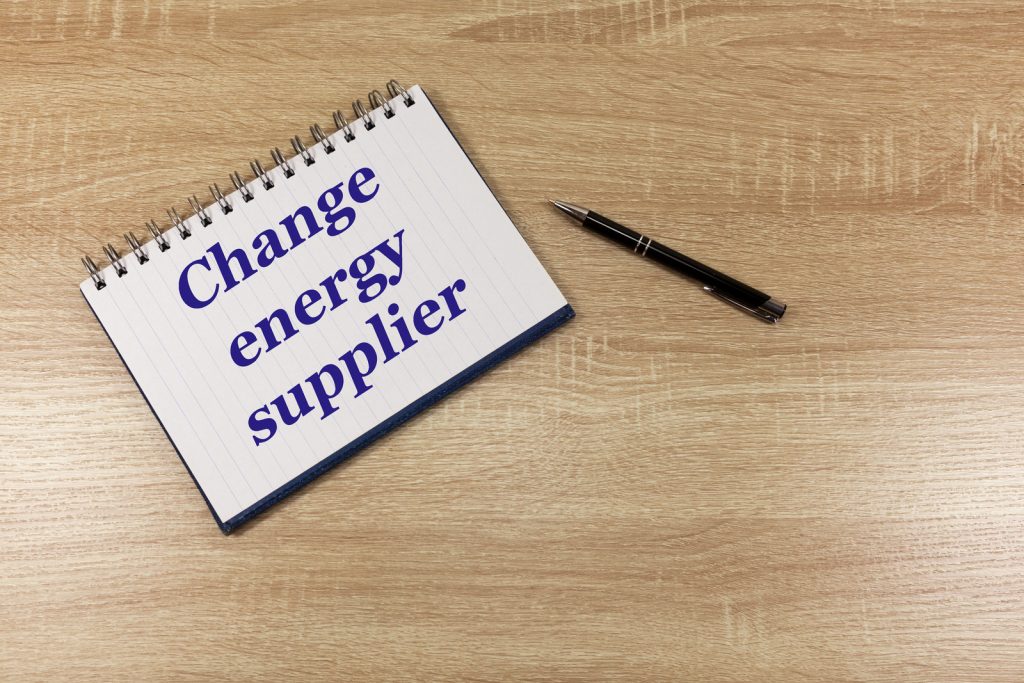There are very good reasons to switch business energy suppliers, not least to save on the ever increasing prices of gas and electricity. Choosing a top long-term tariff is just as important as any other control on expenses. Even if you are in a long-term contract, you should check whether you are paying more than you need to for the price of your energy.
Switching a business energy supplier
Switching business energy suppliers can be done by visiting the supplier’s website or using an energy broker. When you have found the company, it can take 4-6 weeks to complete the switching process from your existing supplier. A business energy contract can last from 1 to 5 year so it is important to go through the terms and conditions carefully.
You can normally switch supplier if you’ve come to the end of a contract, or you were put on a deemed contract – a contract you didn’t choose yourself.

As businesses emerge from the turbulent period of the pandemic, the focus on overheads is paramount. With the squeeze on worldwide supply and increased energy demand from other countries, energy costs should be at the forefront of a small business’ concerns.
Is it quick to switch business energy supplier?
Changing your business energy provider ought to be as simple as exchanging domestic energy suppliers. Be that as it may, the business energy scene is, however, difficult to find your way around.
With a large number of suppliers available, there’s no simple method for ensuring you’re getting the best deal for your wallet. It can be time consuming to do it yourself, but it can be well worth the effort.
It’s very easy to just forget about energy bills once you have signed up with the first supplier that you find cheap. You are more occupied with growing your business. This also means most companies end up spending much more than they need to.
This hurts small companies more than domestic customers because often business energy contracts last longer than domestic, even up to 5 years.
Deemed contracts
With owners busy with running the day to day activities, the energy contract rates often gets overlooked and lapses past the contract end date. Here, you are automatically put onto the deemed, or default contract.
This results in paying the standard higher rate which energy suppliers can blame on higher wholesale costs rather than the fixed contract expiring.
Why it’s important to look for a better deal
What was a cheap deal last year may not look so attractive now and some of the best tariffs don’t tie you into a long term contract but to get them you will need to check when your current tariff is expiring.
So take out (or find first) the current contract that you’re on. If you don’t have it, contact your energy provider or broker to send you a copy, but your latest bill should have all the details required.
You can usually switch supplier if you are on a contract that you did not agree to – like moving into a new premises, or your fixed term contract has ended already and you haven’t yet agreed a new tariff.

If you are in a fixed term energy contract
If you are in a fixed term contract with a supplier and have more than 3 months left on it, it could cost you more to leave the contract early.
For fixed contracts, there are usually penalties or exit fees for ending the contract prematurely. Normally, the earlier you leave a long-term contract, the more it will cost.
So first check when your contract is ending and how much it will cost you to leave early. If the new contract is still cheaper after the fees, then go ahead and switch.
Remember, business energy contracts can be anywhere from 28 days to 5 years.
How long does it take to change supplier?
When you have found the best supplier and signed up to them, it can take between 4-6 weeks for the switch to process. Both your current and new suppliers need to communicate they have the right supply meter, address and reads etc. so it’s successfully transferred.
As soon as you are informed of the start date by your new supplier, contact your current supplier to give them notice you are leaving, along with the start date you have been given. This is important.
Just like switching residential suppliers, you should give up to date meter reads too, just in case they’re not communicated between suppliers and they need to estimate a start and end read for the transfer date. They will use the latest accurate reads to estimate meter readings on the transfer date.
Make sure to pay off any bills with your current supplier.. In some cases, if bills are too high and have been outstanding for over 28 days, your transfer may be blocked.
Giving notice you are switching business energy supplier
When you switch residential gas and electricity, both suppliers take care of the switching process. But this is different with business energy. Here, if is your responsibility to inform the supplier you are leaving and this has to be done at least 28 days before the transfer date. Check your contract terms and conditions to find out exactly what notice period they require.
Letting your current supplier know you are about to switch is important because it saves you money after your contract has ended. Many suppliers automatically put you on a standard tariff which is often more expensive. This is because you have not agreed to any new terms but the supplier is still responsible for your energy supply.
Secondly, it also speeds up the process of switching. If you don’t give notice, your existing supplier may block or object to your leaving, in which case you will have to contact them anyway.
If you have already gone past the end of your contract, you are free to switch away any time, but you still need to let your supplier know you are leaving.
How to give notice to your current energy supplier.
The main options available to give notice are:
- Online form
- Email contact
- Phone
- Letter
Some suppliers are fine with a notice given over the phone; although you need to make sure you have some written confirmation from the supplier. Some request you to fill an online form, while others request it in some form of writing, either via email or letter.
When can your energy supplier raise an objection?
Your switch over to the new supplier may be objected to by your current supplier for a number of reasons. It is important that these are resolved as quickly as possible because the change of supplier cannot go ahead until the objection has been lifted.
They could object to you leaving in the following circumstances:
- The transfer date falls before your contract end date.
- You applied to switch supplier and didn’t notify them.
- They believe you have broken one of the terms of your contract.
- There has been an outstanding debt on your account for more than 28 days
- They supply multiple meters under one account and you have not switched them all over for the same date.
Note that if you are out of contract when the objection is raised, you will be charged at the standard, usually higher, rate of energy until the objection is resolved. If the objection turns out to be valid, you will need to sort it out before reapplying to switch.
Suppliers tend to prolong this period so you pay higher out of contract rates until you eventually leave.

When you agree a new contract
- Look through the new contract you have agreed, making sure you understand:
- How long you are tied into the contract and any early exit fees.
- Will you be notified of the renewal dates?
- The cost of gas and electricity for each unit, standing charges and other added on charges.
- How much notice you will need to give if you want to change supplier or tariff.
What happens if you don’t switch?
If you decide not to switch business energy and want to stay with your current supplier, you should contact them before the current contract ends. They may have a better contract with term that could save you money.
You could inform them you are thinking of changing supplier unless they can offer you a better deal. This way, you don’t have to go through the switching process but still save. But more often than not, you will find a better deal by switching to a different company on a new contract.
Summary
Here are the key steps to switch a business energy supplier:
- Check your current contract for the end date.
- Shop for better tariffs on another supplier’s website.
- Use an energy broker to see if they can beat the quote.
- Wait 4-6 weeks for the switch to complete.
- Inform both old and new suppliers of the transfer meter readings.
- You have now switched over!
Comparing business energy tariffs can be a time consuming activity, considering how easy it is to switch residential energy tariffs. But if you can take some time out, plan ahead and make use of energy brokers like LoveEnergySavings, finding a great deal will pay off in the long term. Take a look at your contract today so you are ready when the time comes to find quotes and switch.
